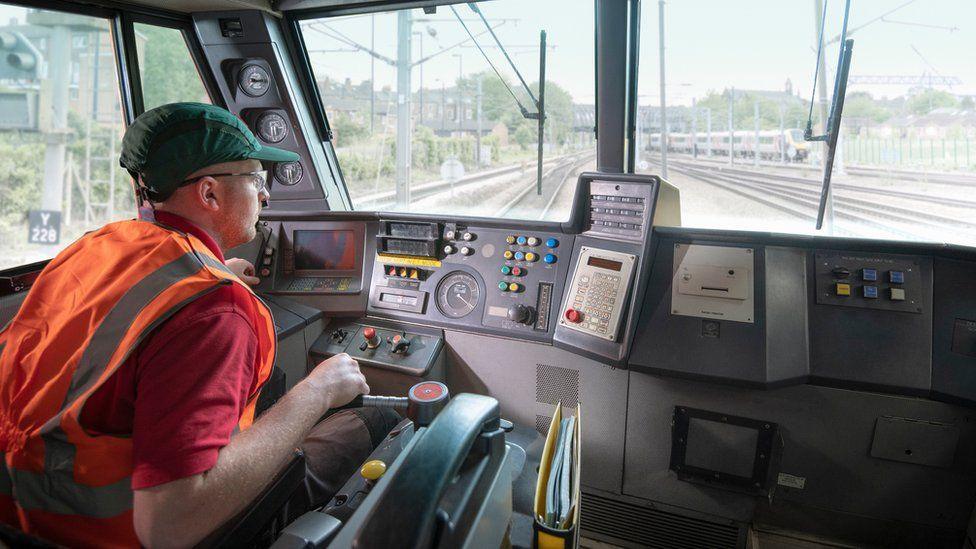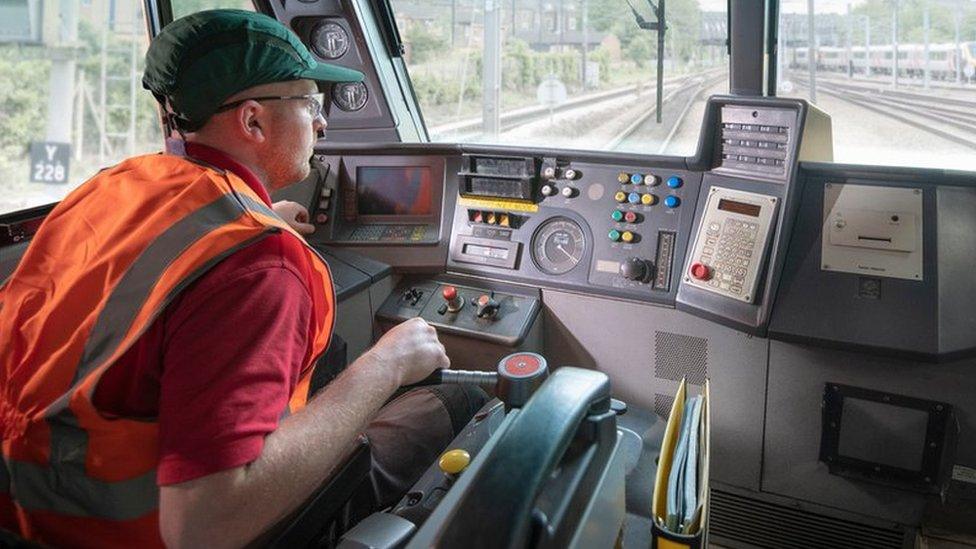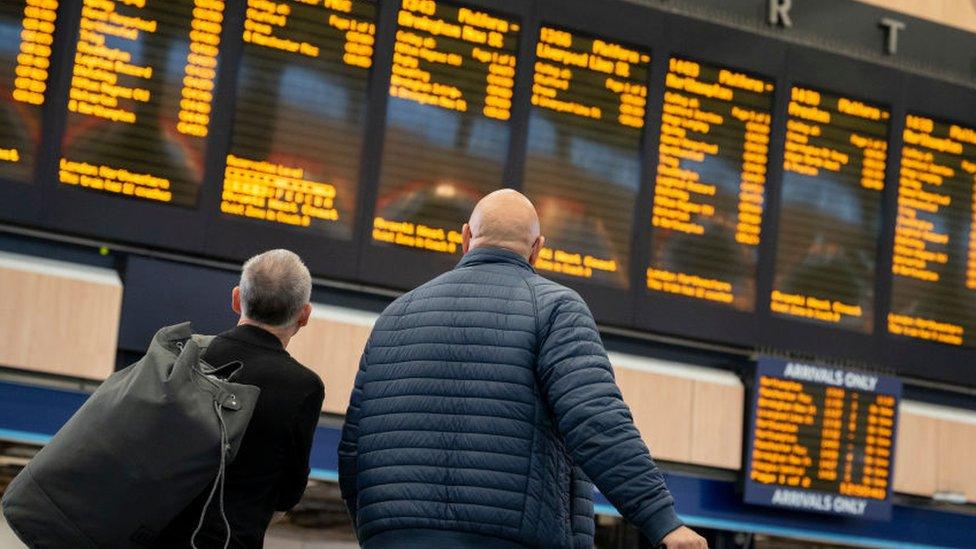Train drivers very close to going on strike, union warns
- Published
- comments

Train drivers are "very close" to going on strike and could walk out within weeks, according to their union.
Drivers at eight rail companies voted on Monday in favour of industrial action in a row over pay.
Mick Whelan, general secretary of Aslef, told the BBC that strike action could happen in the coming weeks if talks over wage rises stall.
"We don't do this lightly," he said. "We see it as a sign of failure when we do have to do it."
However, he pointed out that the union had received a strong mandate from its members to take industrial action with drivers voting overwhelmingly of strikes.
But the Department for Transport (DfT) said: 'It is very disappointing that, rather than commit to serious dialogue with the industry, Aslef are first seeking to cause further misery to passengers by joining others in disrupting the rail network."
Mr Whelan did not say when strikes might begin. Unions must give 14 days' notice.
The announcement has led to fears of disruption to the Commonwealth Games in Birmingham, which is expected to attract about one million tourists between 28 July and 8 August.

Train drivers at the following companies have voted to strike:
Arriva Rail London
Chiltern Railways:
Great Western:
LNER
Northern Trains:
Southeastern:
TransPennine Express:
West Midlands Trains:

Separately, about 2,500 members of the Transport Salaried Staffs' Association (TSSA) also voted in favour of strike action on Monday.
Rail services have already been hit by three days of strikes in June when 40,000 members of the RMT union who work for 13 train companies and Network Rail walked out.
The RMT has resumed talks with Network Rail, which owns and operates the UK's rail infrastructure, as well as the train companies over pay rises. The RMT recently told the BBC that it is "not in any rush" to call for further strikes in July.
Commenting on why Aslef members voted for industrial action, Mr Whelan said: "Quite simply, we haven't had a pay rise for three years. Train drivers went to work during the pandemic, we moved food and medicine around the country, we got other key workers to work and with the cost of living increase and inflation going through the roof, people feel they deserve a pay rise."
The DfT said: "We urge the union bosses to reconsider and work with its employers, not against them, to agree a new way forward."
It added: "Our railway is in desperate need of modernisation to make it work better for passengers and be financially sustainable for the long term."
But Mr Whelan said: "If you want productivity you pay for it."
Related topics
- Published11 July 2022

- Published1 July 2022
